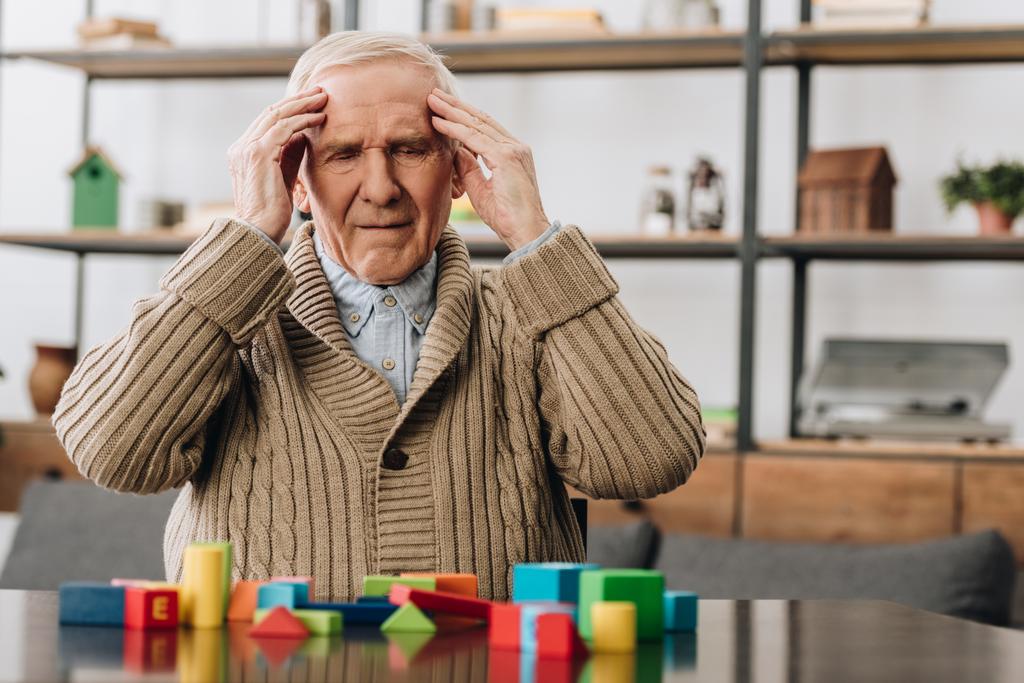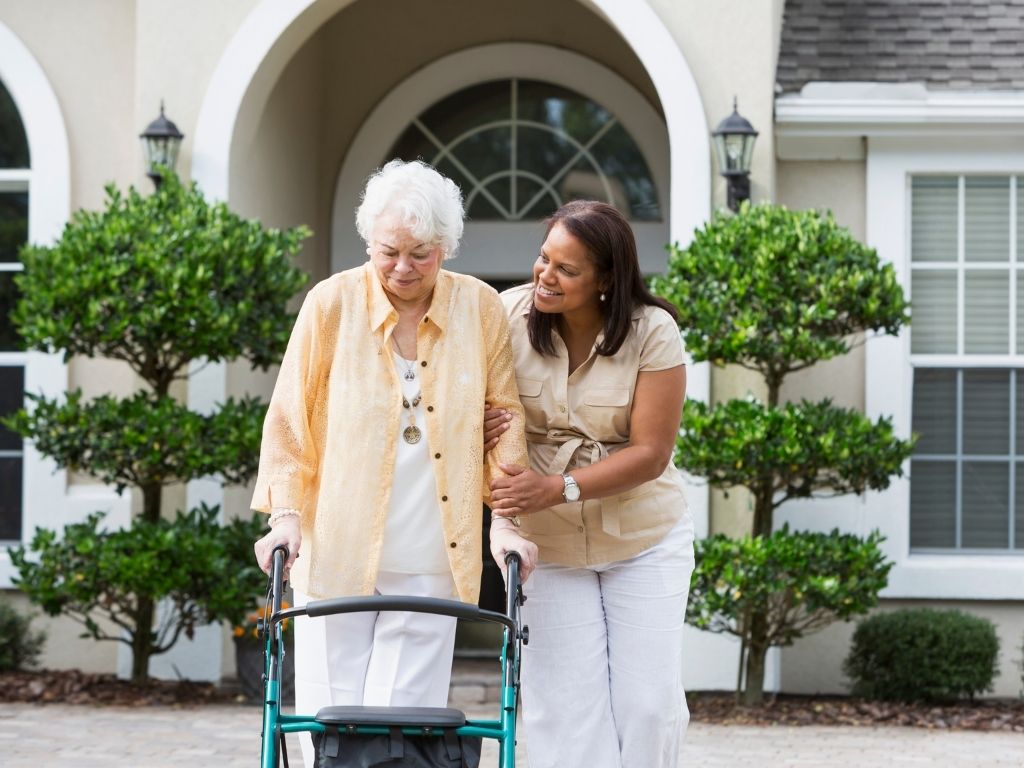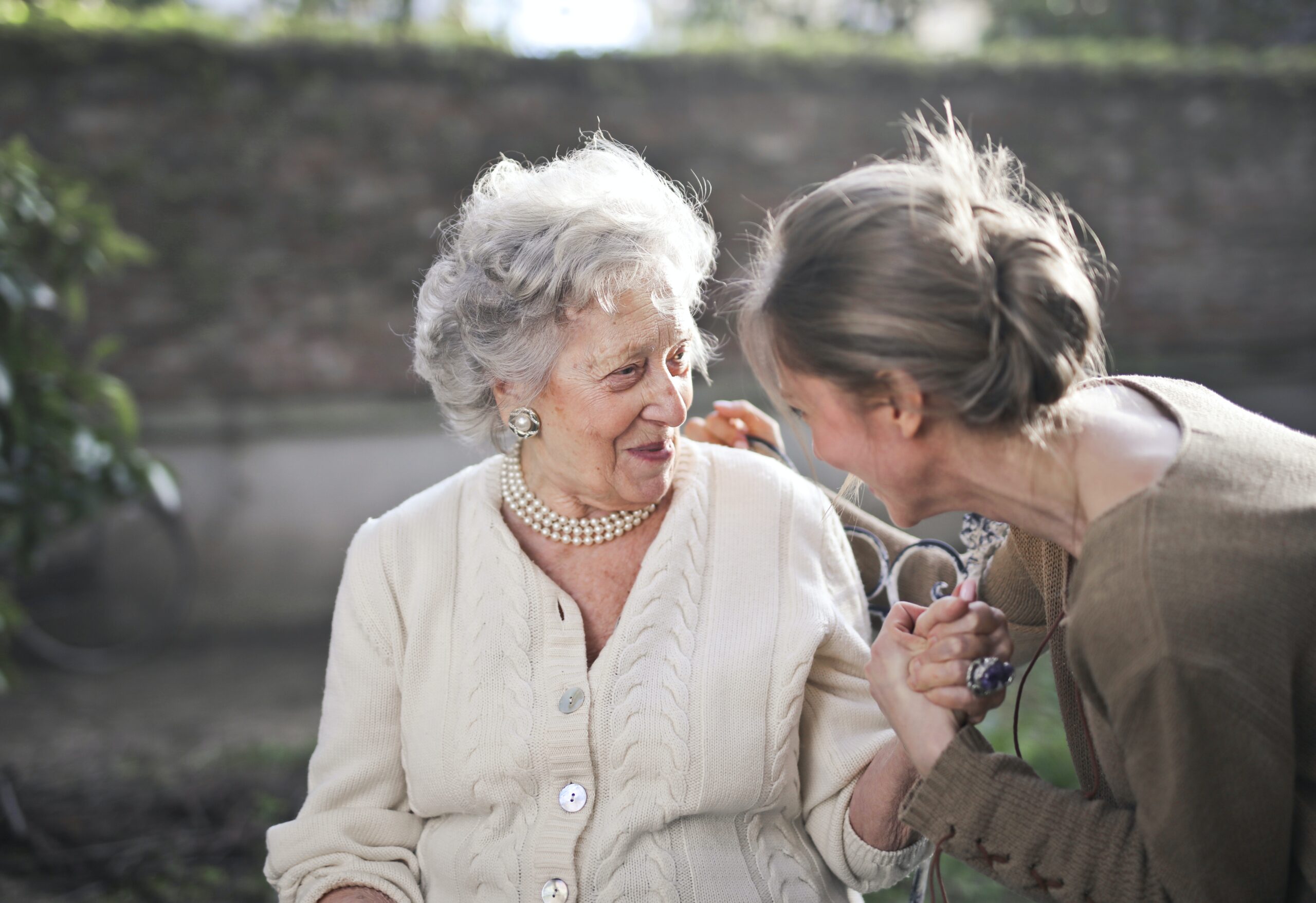Alzheimer’s & Dementia Care
All Around Care provides non-medical Alzheimer’s and Dementia Care Services in the comfort of your own home.
Compassionate dementia care tailored to each person.
Family members and friends of someone who has Alzheimer’s Disease and Dementia shoulder a particularly heavy burden. Helping to maintain some sort of normalcy is key because the type of care needed is physically and emotionally demanding.
Most Alzheimer’s patients — particularly those in the early and middle stages of the illness — can be cared for at home instead of nursing homes and other facilities. More than half of all diagnosed Alzheimer’s patients continue to live in home settings. Eighty to ninety percent of these rely on family and friends for care. At All Around Care we want you to know that you are not alone. Our home care services are available in The Woodlands, Spring, Conroe, Magnolia, Tomball, Montgomery, and Humble.
According to the Alzheimer’s Association:
- More than 5 million people in the U.S. have been diagnosed with Alzheimer’s.
- By 2050, the number of people aged 65 and older with Alzheimer’s dementia may grow to a projected 13.8 million.
- About one in 10 people over age 65 have the disease.
- Alzheimer’s disease or other types of dementia affect up to 50 percent of people over the age of 85.
Understanding dementia and the stages of Alzheimer’s disease.
One in 10 people age 65 and older (10 percent) has Alzheimer’s, according to the Alzheimer’s Association. Alzheimer’s is far from the only type of dementia, but it is the most common, and the number of people affected by it is on the rise due to a growing senior population. Women and minorities are the most likely to develop the disease, and one in three seniors, the association states, dies with Alzheimer’s or another dementia.
It’s possible for a loved one to have dementia and not have Alzheimer’s because Alzheimer’s disease is just one form of dementia. Dementia itself is actually a symptom, not a disease. Other types of dementia include Lewy body dementia, vascular dementia, frontotemporal dementia, short-term memory loss, and Parkinson’s disease. For all forms of dementia, there is a decline in mental function.
Another common symptom of dementia is wandering, which can pose great safety risks. Other symptoms are specific to certain types of dementia, such as tremors and other motor function issues that people with Parkinson’s often develop as a result of the disease.
Alzheimer’s disease doesn’t progress at a predictable rate. For some people, the symptoms will develop slowly during the course of decades, while for others, the disease can seem to worsen rapidly in just a few years. According to the Alzheimer’s association, people with Alzheimer’s live four to eight years after diagnosis, but can live as long as 20 years, depending on other factors.
While Alzheimer’s stages aren’t crisply demarcated — and everyone’s experience with the disease’s progression will be unique — doctors have identified three main stages that most people with the disease experience.
In the mild stage, which typically lasts two to four years, a person with Alzheimer’s may or may not even notice they’re developing the condition. Bouts of forgetfulness may get written off as “senior moments,” especially if longer-term memories are still intact. At this point, family members may begin to notice something is off about a loved one, and doctors may be able to make an initial, watch-and-wait diagnosis.
Symptoms at this stage can include:
- Frequent memory lapses, such as forgetting names or misplacing things
- Difficulty performing everyday tasks that were once easy, such as paying bills or grocery shopping
- Taking longer than usual to perform routine tasks, such as making a pot of coffee or sorting the mail
- Difficulty multitasking, such as carrying on a conversation while cooking or driving
- Difficulty solving problems when tasks can’t be completed in the usual manner
- Poor judgment or decision-making
By now, there’s usually no question that a person is suffering from Alzheimer’s. Doctors will often run memory tests and perform brain scans to make a more definitive diagnosis. People may remain in this stage for a few years or more than a decade, depending on how the disease progresses. During this stage, patients with Alzheimer’s may become increasingly frustrated or withdrawn as they begin to come to terms with the diagnosis.
Caregivers may need to begin coordinating supervised care. Symptoms can include:
- Increased memory loss, including forgetting parts of personal history
- Confusion (for example, not knowing where they are or what day or season it is)
- Difficulty with language, reading and writing, and working with numbers
- Changes in personality and mood, including suspiciousness, delusions, and angry outbursts
- Impulsive behavior, like undressing at inappropriate times
- Greater risk of wandering off or getting lost
- Needing help with daily activities like choosing appropriate clothing for the weather, bathing and grooming, or using the bathroom
- Restlessness and agitation, especially late in the day
- In some people, trouble controlling bowel and bladder function
As cognitive function continues to decline — and in this stage, the decline can be more rapid as well — people may have a hard time having even basic conversations. Around-the-clock care will be necessary for the patient’s own safety, as people at this stage are unable to eat, go to the bathroom, move around, and perform other daily activities by themselves. While this final stage tends to be briefer than other stages, it can still span several years.
- Losing the ability to walk, sit, hold up their head, swallow
- Inability to communicate
- Groaning, moaning or grunting
- Seizures
- Sleeping more
- No longer recognizing family or friends or responding to surroundings
- Becoming more vulnerable to infections, especially pneumonia
Consistent care helps manage memory loss symptoms.
It’s not easy to take care of a patient with dementia. There are things you need to adjust in order to maintain a gentle pace with them. When it comes to dementia care, you can always trust us. We have highly trained professional caregivers who are experts in providing care services that would help achieve and accomplish their day-to-day activities.
Compassionate care to help seniors thrive at home in The Woodlands, Texas.
At All Around Care, we realize that every one of our clients is unique. That’s why we develop a personalized in-home care plan customized to each person’s specific needs. Regardless of which in-home services you need, from a few hours per week to around-the-clock care, you can be confident you or your loved one will receive the nurturing they deserve. Understanding that needs often change, we offer a broad range of in-home health care services and flexible scheduling options, enabling us to respond quickly while putting an updated care plan into action for our clients as needed.
We also recognize that good communication is the key to good customer service. Our supervisory staff is in regular contact with our clients and caregivers to ensure information is shared in an accurate and timely manner. In addition to being well-trained and fully qualified, each All Around Care caregiver must also pass a rigorous background check. Along with having a caregiver who genuinely cares, you will have peace of mind knowing you can contact an on-call nurse supervisor any time of day or night.
Delivered when and where you need them, our dependable Home Care Services include the following:
Alzheimer’s & Dementia Care
If they aren’t a safety risk to themselves or others, helping a senior family member with dementia stay in their home can be highly beneficial. The committed, highly qualified caregivers at All Around Care can assist clients with Alzheimer’s or dementia in the comfort of their private residences.
Our caregivers can help with:
- Meal preparation
- Continuity of care
- Fall prevention

Companion Care
Having a friendly and trusted companion around makes every day at home brighter. At All Around Care, our companion caregivers enjoy spending time with seniors. While there, they can also perform services ranging from assistance with light housekeeping and routine exercise to facilitating socialization with peers.
These are some of the many ways our Companion Care services can help:
- Doctor’s appointments and prescription pick-up
- Mobility assistance
- Light exercise

Personal Care
Many seniors may struggle to perform basic activities of daily living (ADL’s). To assist your efforts, the certified home health aides from All Around Care offer reliable and discreet personal caregiving assistance for seniors.
Our customized Personal Care solutions include the following:
- Bathing & Showering
- Transfer & Ambulation Assistance
- Toileting & Incontinence Care
- Oral Hygiene

Post-Surgical Care
Our caregivers provide safe, supportive care tailored to each individual’s recovery needs, offering assistance with mobility, personal care, and daily tasks. Whether it’s help with dressing, bathing, or simply getting around the house, our caregivers are here to ensure that you’re comfortable and protected as you regain strength.
Our caregivers can assist with:
- Mobility Support
- Transportation
- Meal Preparation
- Personal Hygiene

Light Housekeeping
If your senior loved one needs help maintaining their household, our convenient Light Housekeeping services can keep their home environment clean, comfortable, safe, and healthy. While we are not a dedicated cleaning service, our caregivers can provide housekeeping services that include:
- Laundry
- Bedmaking and linen changes
- Dusting, vacuuming, floor care (sweeping, mopping, etc.)

Meal Preparation
Our knowledgeable field staff will ensure that your aging loved one eats better each and every day. From the initial grocery shopping to the in-home meal preparation itself, our caregivers will make sure that your senior’s nutritional needs are being met in the comfort of their own home.
Our caregivers can help with:
- Meal planning
- Meal preparation
- Grocery shopping

Medication Supervision
Our highly trained caregivers and home health aides understand the importance of helping independent seniors remember to take their daily medications as prescribed.
We assist with medication reminders on time. If any medications are missed or missing, we will inform the family of these changes and encourage them to contact their Primary Care Physician for guidance.
Our aides assist with:
- Monitoring medication dosage
- Medication reminders
- Medication reporting

Respite Care
Although it’s a labor of love, caring for an aging friend or relative can be physically and emotionally demanding. If you’re not careful, caregiver burnout can sneak up on you when least expected, impacting the quality of life of both you and your loved one.
Our reliable respite caregivers can step in and assist with:
- Short-term care
- Personal care assistance
- Companionship

Frequently Asked Questions
We offer customized and tailored support in our client’s home environment.
Home care services are provided in the comfort of our client’s home, while assisted living is offered in a facility that is shared amongst residents. We can provide care to our clients who live in assisted living facilities.
Yes, we provide around-the-clock care to meet the needs of our clients.
Our caregivers are highly qualified, trained, and undergo thorough and ongoing background checks to ensure the highest standards of care.
Absolutely, we work with you to create a customized care plan that suits the specific needs and preferences of your loved one.
Yes, we provide specialized dementia care with a focus on creating a safe and supportive environment. We create an individualized care plan for dementia clients and we comfort them by creating familiar connections with their environment. We join our client’s journey through established daily routines and a consistent caregiving team.
Safety is our highest priority. We conduct home safety assessments, recommend safety measures, and provide ongoing training to our caregivers and family members.
Our services are covered by most long-term care insurance (LTC) policies. We are a private pay agency and we accept all major credit cards and personal checks.
Home care allows individuals to maintain independence and comfort in familiar surroundings of home, promoting emotional well-being.
Yes, we offer respite care to provide family caregivers with temporary relief and support.
You can contact us through our website, phone, or email to discuss your needs and initiate the service assessment. In most cases, the assessment can be scheduled within 24 to 48 hours.
Costs vary based on the level of care needed. We offer transparent pricing plans tailored to individual requirements.
You are always in full control of who you allow in your home. Caregiver matching is based on skills, experience, and compatibility, ensuring a positive and comfortable relationship.
No, we do not offer live-in care but we do offer around clock 24/7 care provided by experienced care providers.
Absolutely, our caregivers can assist with medication reminders and keep family members informed when medications are due for refill.
Personal assistant services include activities of daily living including but not limited to errands, grocery shopping, meal preparation, and bathing.
We maintain open communication channels, and you can expect regular updates through calls, emails, or our secure online “Family Portal”.
Yes, our caregivers are trained to assist individuals with various mobility challenges.
We prioritize cultural competence through ongoing training and by respecting and understanding the diverse backgrounds of our clients.
Absolutely, we understand that needs may change, and we are flexible in adjusting care plans accordingly.
